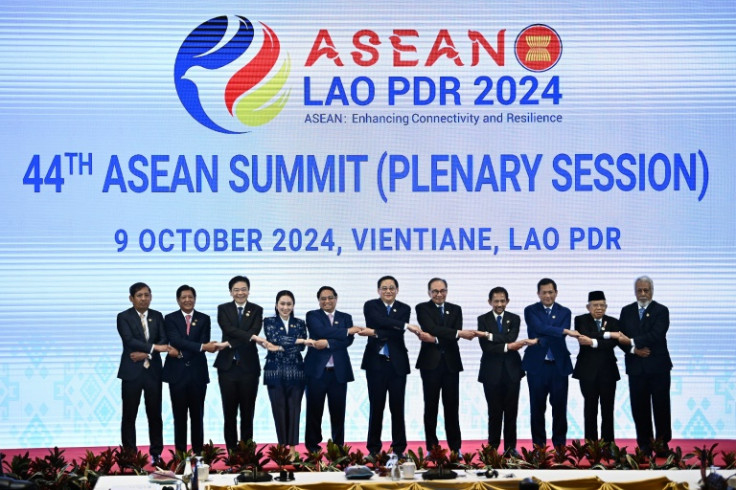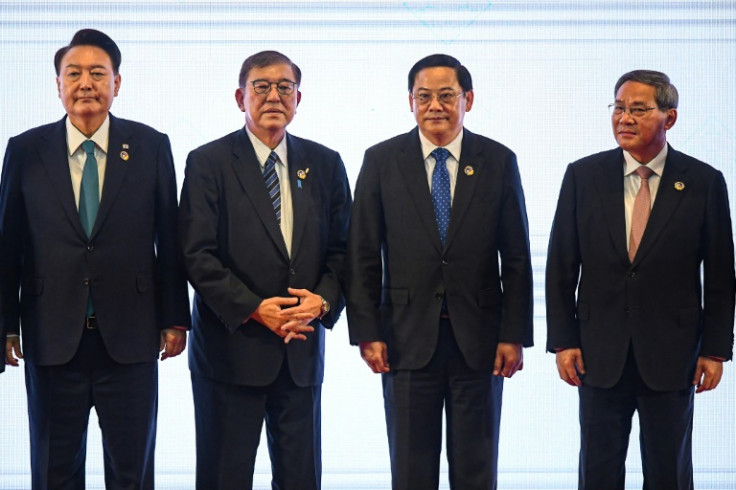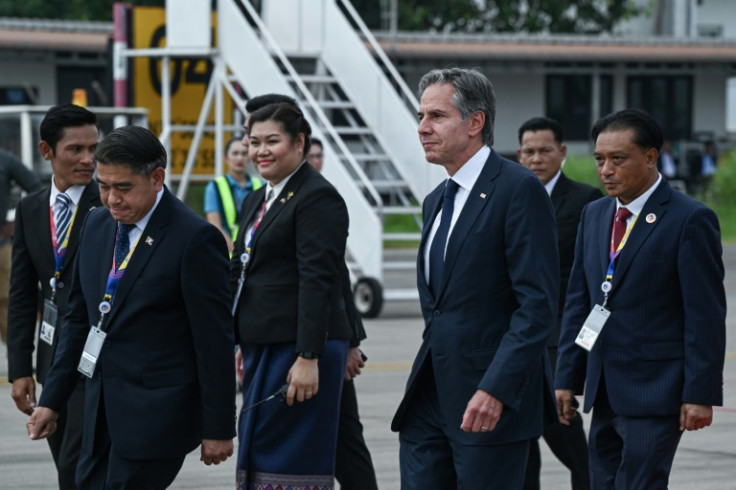Philippines Confronts China Over South China Sea At ASEAN Meet

Philippine President Ferdinand Marcos challenged Chinese Premier Li Qiang over recent clashes in the South China Sea at regional summit talks on Thursday as fears grow that conflict could erupt in the disputed waterway.
Li met the leaders of the 10-member Association of Southeast Asian Nations (ASEAN) at their gathering in Laos after a day of discussions dominated by the Myanmar civil war.
There has been a spate of violent clashes between Chinese and Philippine vessels in recent months in waters around disputed reefs and islands in the South China Sea.
Marcos raised the issue in the meeting with Li, arguing that "you cannot separate economic cooperation from political security", a Southeast Asian diplomat who attended the meeting told reporters.
The Li summit was largely focused on trade and came the same day he met with Australian Prime Minister Anthony Albanese, who said Beijing had agreed to lift sanctions on the lucrative lobster industry.
However, Marcos told the meeting that ASEAN and China cannot pretend that all is well on the economic front when there are tensions on the political front, the Southeast Asian diplomat said.
Marcos also said both sides should hasten talks on a code of conduct in the sea.
ASEAN leaders repeated on Wednesday longstanding calls for restraint and respect for international law in the South China Sea, according to a draft summit chairman's statement seen by AFP.
The growing frequency and intensity of clashes in the disputed waterway are fuelling fears that the situation could escalate.
"The South China Sea is a live and immediate issue, with real risks of an accident spiralling into conflict," Singapore's Prime Minister Lawrence Wong told fellow leaders in Wednesday's summit.
Beijing claims almost the entirety of the South China Sea, a waterway of immense strategic importance through which trillions of dollars in trade transits every year.
ASEAN members Malaysia, Vietnam, Indonesia, Brunei and the Philippines also have competing claims to various small islands and reefs.
Japan's new Prime Minister Shigeru Ishiba met the ASEAN leaders and voiced concerns about "continuing and intensifying militarisation and coercive activities" in the South China Sea.
European Council President Charles Michel called for de-escalation and said the EU supported countries exercising their "legitimate rights" in the waterway.
The meeting with Li followed a slew of violent clashes, particularly with the Philippines around the Spratly Islands.
Chinese coast guard and other vessels have rammed, used water cannon against and blocked Philippine government vessels.
Vietnam also issued an angry condemnation this month after some of its fishermen were attacked and robbed off the Paracel Islands by what it called "Chinese law enforcement forces".
Beijing responded that the islands are its sovereign territory and its personnel were taking action to stop "illegal fishing" by the Vietnamese.
Secretary of State Antony Blinken arrived to represent the United States at Friday's East Asia Summit, where he will back concerns about Beijing's increasingly assertive claims in the South China Sea.
Daniel Kritenbrink, the top US diplomat for East Asia, accused China of taking "escalatory and irresponsible steps designed to coerce and pressure many in the South China Sea".
China has for years sought to expand its presence in sea's contested areas, brushing aside an international ruling that its claim to most of the waterway has no legal basis.
It has built artificial islands armed with missile systems and runways for fighter jets, and deployed vessels that the Philippines says harass its ships and block its fishers.
The East Asia Summit will put Blinken in the same room as Russian Foreign Minister Sergei Lavrov but the pair are not expected to hold one-on-one talks, with Washington believing Moscow is insincere in its calls for peace talks on Ukraine.
Ishiba held his first face-to-face meetings with Li and President Yoon Suk Yeol of South Korea on Thursday.
They also joined the ASEAN leaders in the annual "ASEAN Plus Three" format.
Li used his opening remarks to warn of the danger of "attempts to introduce bloc confrontation and geopolitical conflicts into Asia" -- a coded swipe at Ishiba's past calls for a regional military alliance along the lines of NATO.


© Copyright AFP 2025. All rights reserved.





















